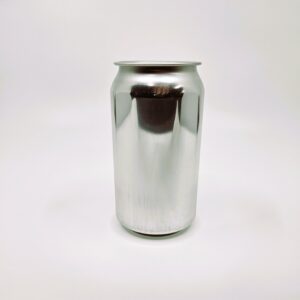
Introduction
When it comes to bottling beer or cider, the type of bottle you choose matters more than you might think. First-time bottlers often ask, “Can I reuse old bottles?” or “What’s the best bottle for keeping my beer fresh?”—and these are great questions. The right bottle not only ensures your brew stays carbonated and fresh but also makes bottling day smooth and hassle-free.
One of the biggest mistakes new brewers make is trying to use bottles that aren’t designed for pressurized beverages. Regular wine bottles, liquor bottles, and kitchen store bottles aren’t built to handle carbonation. At best, you’ll end up with flat beer. At worst, you might experience leaks or even bottle explosions. That’s why choosing proper, pressure-rated bottles is key to a successful bottling process.
Beyond choosing the right bottle type, it’s also worth considering reusability. Unlike recycling, which requires bottles to be melted down and reformed, reusing bottles means simply cleaning and refilling them. This not only saves you money—you only need to buy bottles once—but also has a significant environmental benefit. Every time you reuse a bottle, you reduce waste, lower energy consumption, and cut down on the need for new materials. Glass bottles, in particular, can be reused indefinitely with proper care, making them a great choice for sustainable brewing.
Whether you’re looking for glass bottles for traditional long-term storage, PET bottles for an easy and lightweight option, or even aluminum cans for the ultimate convenience, we’ll walk you through the pros and cons of each. Let’s dive into how to choose the best bottle for your next batch.
Types of Bottles and Their Pros & Cons
Choosing the right bottle for your beer or cider is about more than just looks—different types of bottles offer unique advantages and drawbacks. Below, we’ll break down the most common options and what you should consider when selecting the best one for your needs.
Crown Cap Glass Bottles (Our Preferred Choice)
Pros:
- Traditional Look & Feel: Glass bottles are the classic choice for beer and cider, offering a professional and familiar drinking experience.
- Oxygen-Scavenging Caps: Standard crown caps include oxygen-scavenging liners that help maintain beer freshness longer.
- Reusable & Sustainable: With proper cleaning and sanitation, glass bottles can be reused indefinitely, making them a cost-effective and eco-friendly option.
- Better for Long-Term Storage: Glass is impermeable to oxygen, helping maintain the quality of your beer or cider over time.
Cons:
Breakable & Heavier: Glass is fragile, so bottles need to be handled with care. They’re also heavier than other options, which can be a factor for transport.
Swing Top Bottles
Pros:
- Versatile and Reclosable: Swing Top or Flip Top bottles are unique in that you can re-seal them after opening them
- Heavy Duty: Most swing top bottles are made from thicker glass and can handle rougher service
- Enjoyable Asthetics: Swing top bottles are undeniably stylish
Cons:
- Cost: Swing top bottles are considerably more costly than other styles of glass bottles
- Weight: Thicker glass = heavier weight – these bottles are not light
- Harder to Share: Due to their higher cost, most people are a bit more hesitant to share swing top bottles with others
PET (Plastic) Bottles
Pros:
- Lightweight & Shatterproof: Ideal for outdoor activities like camping, hiking, or taking beer to a party.
- Easier to Cap: PET bottles come with screw caps, so there’s no need for a capper.
- Cost-Effective: Generally cheaper upfront than glass bottles.
Cons:
- Not as Oxygen-Resistant: PET allows some oxygen to pass through over time, which can lead to oxidation and stale flavors if stored for too long.
Less Durable in the Long Run: While reusable, PET bottles can scratch or degrade over time, making sanitation more difficult.
Aluminum Cans
Pros:
- Blocks Light Completely: Unlike glass bottles, cans offer total protection against light exposure, preventing skunky beer.
- Lightweight & Portable: Cans are significantly lighter than glass bottles, making them ideal for transport.
- Quick to Chill: Aluminum cools faster than glass, so your beer or cider gets cold quickly.
- Cheaper Up Front: Cans are an affordable way to package beer without needing to invest in bottles right away.
- Great for First-Time Bottlers: When brewing with us, cans let first-time brewers get a taste for the process without needing to buy bottles immediately.
Cons:
- Ongoing Expense: Unlike reusable bottles, cans must be purchased for each batch.
Growlers (Glass or Metal)
Pros:
- Large Volume: Larger bottles are quicker to fill, which makes bottling a breeze.
- Easy To Find: Growlers are a common sight at thrift shops and can frequently be found essentially for free
Cons:
- Poor Sealing: Growlers are notorious for leaking carbonation. Don’t expect beer to stay carbonated long.
- Large Headspace: Both glass and metal Growlers tend to have a large headspace above the beer. As a result, quite a bit more oxygen gets trapped inside during bottling leading to quick decomposition

Can I Reuse Bottles from Other Drinks?
One of the most common questions we get from first-time bottlers is whether they can reuse bottles they already have at home. After all, saving bottles from store-bought beer, wine, liquor, or even pop seems like a great way to cut costs and reduce waste. While reusing bottles is a great idea, not all bottles are created equal—especially when it comes to bottling carbonated beverages like beer or cider.
Screw-Top Glass Bottles: Not Recommended
Some commercial beer bottles come with screw tops rather than traditional crown caps. While it is technically possible to crimp a new cap onto these bottles, we don’t recommend it. Screw-top bottles have thinner glass at the rim, which means they’re more likely to crack when capping. Even if they do seal, the airtightness isn’t always reliable, which can lead to flat or oxidized beer. It’s frustrating to go through the entire brewing process only to end up with an underwhelming final product, so it’s best to stick with proper crown-cap bottles.
Liquor Bottles: Do Not Use
Liquor bottles may look like a convenient option, but they are not designed for pressurized liquids. Most liquor bottles use a simple screw cap or cork meant for still liquids, and they’re made of thinner glass. If you try to carbonate beer in them, the pressure can cause leaks—or worse, bottle failure. If you’ve ever had a bottle explode, you know it’s not something you want to deal with.
Wine Bottles: Never Use for Carbonated Beverages
Standard wine bottles are designed for still liquids, not carbonated ones. Using regular corked wine bottles for beer or cider will likely result in the corks blowing out as the pressure builds. It’s a guaranteed mess and a waste of good beer.
PET Plastic Bottles: A Potential Choice
Plastic pop bottles do work well for beer or cider, with a few caveats. Commonly available in 500mL, 1L and 2L sizes, these are a great inexpensive way to store your beer. Pop bottles are reasonably easy to clean and are designed to hold pressure. We stock PET Bottle Caps which are available for free when you’re bottling with us, what’s not to like?
The main disadvantage to PET pop bottles is they do not block light. Beer is degraded by light fairly quickly. Most pop bottles are at best green, which does help reduce light intrusion but doesn’t effectively stop it.
PET will also allow some oxygen intrusion in to your beer. Oxygen is a tricky little molecule and can actually pass through PET even when it is sealed and holding pressure. We do not recommend PET for long term storage.
Larger sized bottles are quick to fill, but you will need to commit to drinking the entire thing within a day or so of opening it. A 2L pop bottle is about the same size as a 6-pack of cans, so make sure you’re ready to drink that much before opening one!
Crown Cap Commercial Beer Bottles: A Great Option
If you have beer bottles that originally came with a crown cap, these are perfectly fine to reuse. Just make sure to clean and sanitize them thoroughly before filling them with your brew. Many homebrewers collect and reuse bottles from commercial beers, and as long as they are not screw tops, they work just as well as brand-new bottles.
Best Practices for Reusing Bottles
- Inspect Each Bottle: Check for cracks, chips, or weakened glass. Discard any bottles with visible damage.
- Remove Labels & Residue: Soak bottles in warm water with a bit of cleaner to remove labels and sticky residue.
- Sanitize Properly: Before bottling, sanitize all bottles using a brewing sanitizer to kill any bacteria or wild yeast.
- Use Proper Caps: Always use new crown caps with oxygen-scavenging liners for the best seal and longest shelf life.
By choosing the right bottles, you can enjoy all the benefits of reusing bottles—saving money, reducing waste, and keeping your beer tasting fresh—without the risks that come with using the wrong ones.
Bottle Sizes: What’s Best?
Bigger is not always better! Larger bottles are more convenient to fill, no doubt about it. However they also won’t keep long once opened – a big beer is a big commitment! I always joke that a 650mL beer is a ‘Commitment Beer’ – you have to want to drink that much in one go, meaning they aren’t great for that last beer of the night.
On the flip side, smaller bottles means you’ll have to clean, store and fill quite a few bottles. We don’t recommend using anything less than a 355mL bottle, with about 500mL being the sweet spot for most people.
Your Bottling Options at Terminal City Brewing
We carry a wide selection of new reusable bottles suitable for beer, cider or sparkling wine.
Our bottles are sold individually or by the case. Full cases are better value than buying individual bottles – not only do you get a convenient carrying box, you also save some money versus buying the bottles individually. However we’re more than happy to sell you just what you need!
Just starting out with us? Talk to us about our Full Batch Discount, valid only when bottling U-Brew products made here with us.
Here’s a look at what we have available:
Cans
Crown Cap Bottles
-
Crown Bottle Caps
Price range: $0.10 through $7.50 -
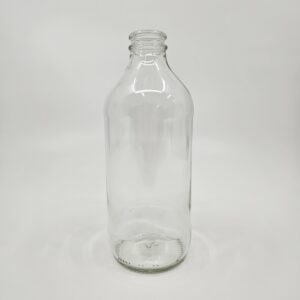
Beer Bottle – Stubby – 355mL – Clear
Price range: $1.49 through $32.99 -
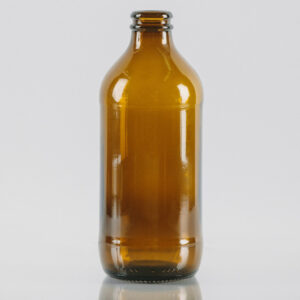
Beer Bottle – Stubby – 355mL – Amber
Price range: $1.49 through $32.99 -
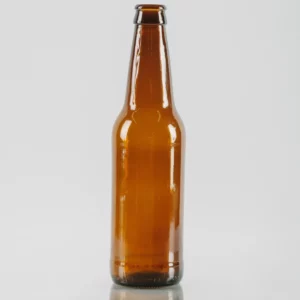
Beer Bottle – Long Neck – Amber Glass – 355mL
Price range: $1.49 through $32.99 -
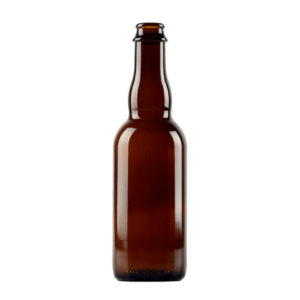
Beer Bottle – Belgian Glass – 375mL
Price range: $1.55 through $16.99 -

Beer Bottle – Glass – Vichy Lager Style 500 mL
Price range: $2.75 through $29.99
Swing Top Bottles
-
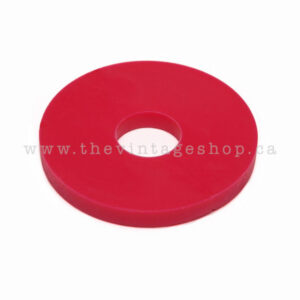
Rubber Washer for Swing Top Bottles
Price range: $0.50 through $12.99 -
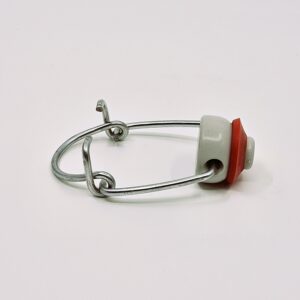
Replacement Swing Top Assembly (Includes Washer)
$2.25 -
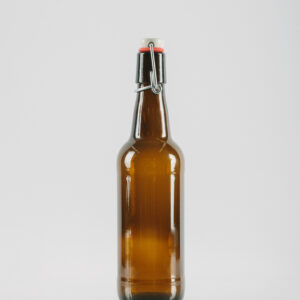
Beer Bottle – Glass – Amber Swing Top – 500mL
Price range: $3.49 through $37.99 -
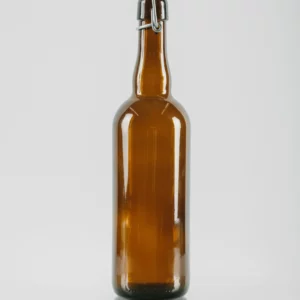
Beer Bottle – Glass – Amber Swing Top – 750mL
Price range: $4.99 through $52.99 -
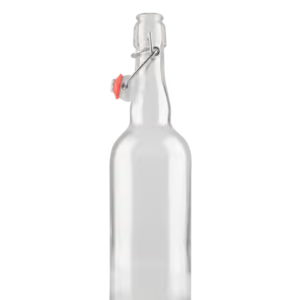
Beer Bottle – Glass – Clear Swing Top – 750mL
Price range: $4.99 through $52.99
PET Plastic Bottles
-
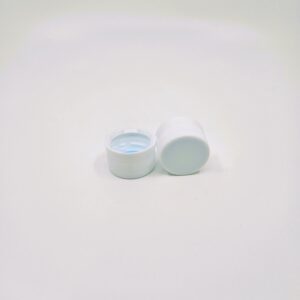
PET Bottle Caps
$0.15 -
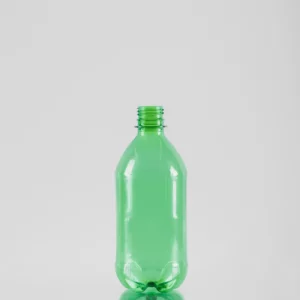
Beer Bottle – PET – 500mL – Green
Price range: $0.95 through $21.99 -
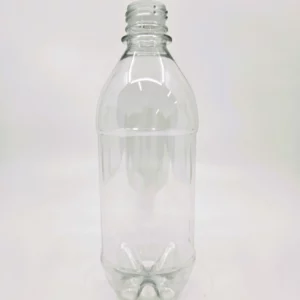
Beer Bottle – PET – 500mL – Clear
$0.99 -

Beer Bottle – PET – 500mL Amber
Price range: $1.49 through $33.99 -
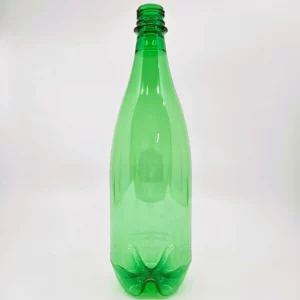
Beer Bottle – PET – 1L – Green – Tapered
Price range: $1.60 through $18.99 -

Beer Bottle – PET – Amber – 1L
Price range: $2.99 through $25.99

